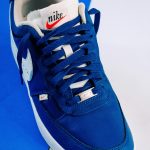Will luxury goods struggle in a looming recession?
It’s hard to say for sure. I’ve been developing a small luxury wellness product, but I’m concerned it may either flop or be difficult to sell given the current economic uncertainty, which feels more pronounced now than it did during the pandemic—with no signs of improvement on the horizon.
I’m contemplating whether it’s worth the investment—I’m looking at an initial cost of around $5,000 to $10,000 for product development, packaging, compliance, website creation, and marketing.










2 Comments
It’s understandable to have concerns about launching a luxury or wellness product during times of economic uncertainty. Historically, luxury goods can indeed face challenges during recessions, as consumers often prioritize essential items over non-essential luxury products. However, there are a few factors to consider that may help you navigate this situation:
Target Market: If your product caters to a niche market that values luxury and wellness, you might still find demand. The wealthier segments tend to remain less affected during downturns. Understanding your target audience’s needs and spending habits is crucial.
Value Proposition: Consider how your product adds value, especially in times of stress or uncertainty. If your luxury good provides a significant wellness benefit or enhances quality of life, consumers may still be willing to spend on it.
Marketing Strategy: Emphasizing the emotional benefits of your product and how it can enhance well-being can resonate with consumers even during tough economic times. Tailoring your marketing messaging to reflect current sentiments can also be effective.
Flexibility: Be prepared to adapt your product or pricing strategy based on market feedback. This could involve offering different price points, subscription models, or limited-time offers to encourage initial sales.
Market Research: Conducting thorough market research can help you gauge demand for your product. Surveys, focus groups, or even a minimal viable product can provide insights before making a larger investment.
Ultimately, every business venture carries risk, especially in uncertain economic conditions. Balancing your passion for the product with a realistic assessment of the current market can help you make a more informed decision about whether to proceed. Good luck with your endeavor!
Your concerns about launching a luxury wellness product during an impending recession are valid and shared by many entrepreneurs in the luxury sector. Historically, luxury goods tend to experience a dip during economic downturns, as consumers often reassess their discretionary spending. However, it’s important to note that the luxury market can also be resilient, depending on various factors.
One potential avenue to consider is the unique positioning of your product. Wellness has increasingly become a priority for consumers, especially post-pandemic, which suggests that a luxury wellness offering could still find a niche audience. Marketing your product as an investment in self-care and health might resonate well, particularly if you can emphasize the quality and exclusivity that luxury buyers often seek.
Additionally, think about the potential for a diversified marketing strategy. Leveraging digital platforms and social media can create a sense of community around your product, making it more desirable. Collaborating with influencers aligned with wellness trends can also amplify your reach without large upfront expenses.
Lastly, consider implementing flexible pricing strategies or tiered offerings to attract a broader customer base while maintaining your luxury branding. By understanding your target market’s evolving mindset during a recession and adapting accordingly, you could mitigate some risks associated with launching your product. Best of luck with your venture!